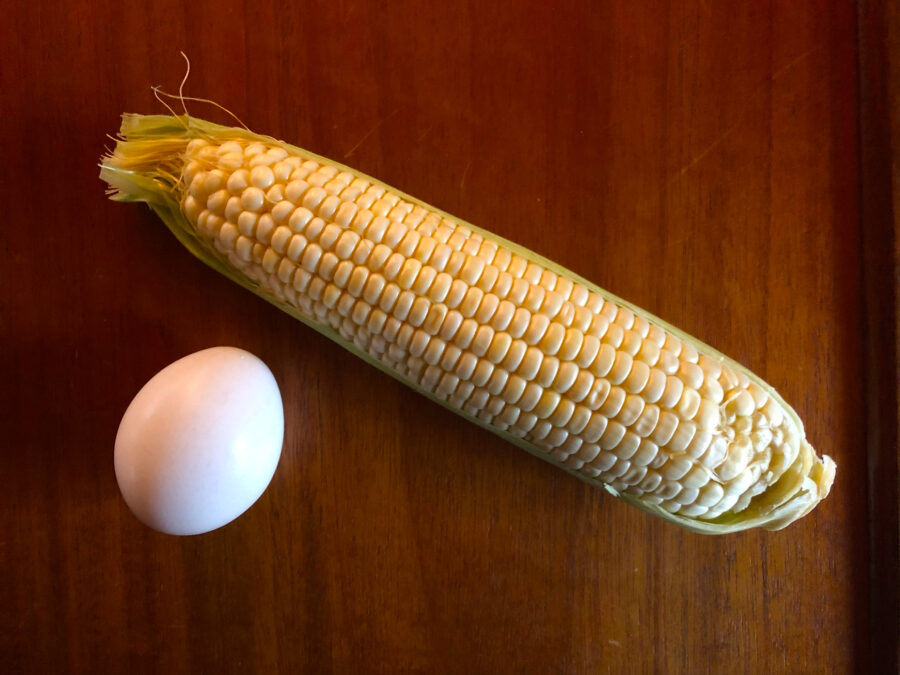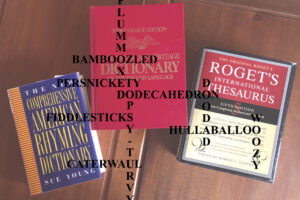The other day on a local news program, I heard the newscaster say in a report that a certain school principal was an “escape goat.” This brought many fanciful images to my mind. Was the principal a literal goat? If the goat escaped, was it out having fun or causing mischief? No, I realized the commentator meant “scapegoat.” I was at first appalled that someone in public media could make such a mistake. I soon found it is not all that uncommon—and there is a name for this particular error!
Eggcorn
An eggcorn is a misheard word or phrase. Merriam-Webster describes it like this, “a word or phrase that sounds like and is mistakenly used in a seemingly logical or plausible way for another word or phrase.” An aspect of eggcorns is that the incorrect versions of the phrases often make some sense. Frequently, unfamiliar or archaic turns of phrase are replaced with a word the user knows.
In 2003, in an article on Language Log, Mark Liberman referred to the case of a woman mistakenly using the word “eggcorns” instead of “acorns.” British-American linguist Geoffrey Pullum suggested that since no suitable term exists for cases like this, we should call them eggcorns.
Scapegoat or Escape Goat
A scapegoat is someone who takes the blame for someone else. This person is identified as the cause of a failure or mistake, but who is not in fact responsible. Scapegoats were once real animals that symbolically carried the sins of the Jewish community into the wilderness, away from the people.
Using the phrase escape goat vaguely makes sense because people looking for a scapegoat are trying to escape blame. Also, an escape goat could refer to a farm animal that is good at sneaking out of its pen.
Other Common Eggcorns
There are many examples of common eggcorns, but these are ones that I have heard used—and some I may have used as well! I am pretty sure I grew up saying bobwire since that is what my father called it.
- for all intensive purposes (for all intents and purposes)
- doggy-dog world (dog-eat-dog world)
- curve your hunger (curb your hunger)
- cold slaw (cole slaw)
- chock it up (chalk it up)
- expresso (espresso)
- handy-downs (hand-me-downs)
- old wise tale (old wives’ tale)
- a hair’s breath (a hair’s breadth)
- a mute point (a moot point)
- bobwire (barbed wire)
- lack toast and tolerant (lactose intolerant)
- new leash on life (new lease on life)
- spread like wildflowers (spread like wildfire)
- zero-sum gain (zero-sum game)
- pre-Madonna (prima donna)
- coming down the pipe (coming down the pike)
- give up the goat (give up the ghost)
Sometimes a word may sound like the right word and even make sense, but isn’t actually the correct word. It is easier to mishear words rather than misunderstand when you read them. If a person only hears a phrase spoken, it is more difficult to know the correct phrase.
From now on, maybe I won’t be so critical of someone who makes this mistake.











Leave a Reply
Your email is safe with us.